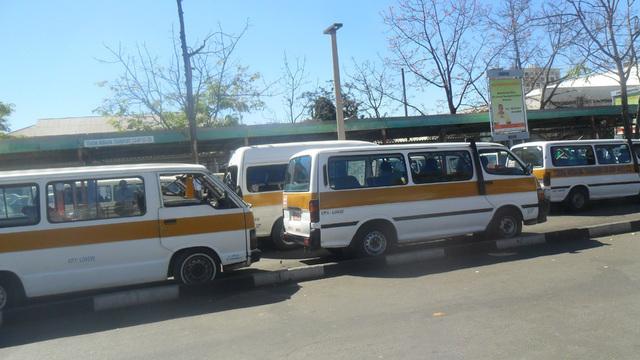News / National
Govt defends 60km radius restrictions decision
09 Sep 2024 at 07:06hrs |
0 Views

The government has defended its decision to reduce the operating radius of commuter omnibuses (kombis) from 120km to 60km, stating that it followed consultations and assurances that the national bus fleet is equipped to service all areas across the country.
On Tuesday, the Ministry of Transport and Infrastructural Development announced the new policy, which affects the issuance of route permits for 26-seater and smaller Public Service Vehicles (PSVs). The changes also mandate the immediate installation of speed-limiting and monitoring devices to help reduce road accidents.
The decision caught many transport operators off-guard, who expressed concerns over the lack of consultation but indicated they would comply while seeking further dialogue with the authorities to potentially reverse the policy.
In response, Ministry spokesperson Judith Nhau explained that since 2018, the government has allowed the duty-free importation of buses, resulting in excess capacity to meet passenger demand in both urban and rural areas. She added that the policy was introduced after consultations confirmed that the expanded bus fleet could handle commuter traffic.
“The radius-based restrictions were revised to 60km after consultations and assurances that the national bus fleet will cover all areas. Kombis will continue to operate for short distances, servicing the first and last mile of commuter journeys, while high-capacity buses will handle longer routes,†Nhau stated.
The ministry said the new measures are part of a broader strategy to reduce road accidents involving kombis and improve public transport safety. Nhau also noted that deregulation of the sector had led to a sharp increase in privately operated kombis, which, despite empowering local operators, also caused negative issues like congestion, noise, fare hikes, and disorderly behavior.
“Kombi operators generally have poor compliance with regulatory and safety standards. In contrast, high-capacity buses offer more reliable, comfortable, and consistent services on long-distance routes,†she said.
However, Nhau clarified that the policy does not affect cross-border kombis or those owned by institutions like schools, as these operations are regulated under regional agreements with the Southern African Development Community (SADC) and the Common Market for Eastern and Southern Africa (COMESA).
School buses, hired kombis, and organized tour operators will also be exempt from the 60km restriction, as they typically comply with safety standards and regulatory requirements.
On Tuesday, the Ministry of Transport and Infrastructural Development announced the new policy, which affects the issuance of route permits for 26-seater and smaller Public Service Vehicles (PSVs). The changes also mandate the immediate installation of speed-limiting and monitoring devices to help reduce road accidents.
The decision caught many transport operators off-guard, who expressed concerns over the lack of consultation but indicated they would comply while seeking further dialogue with the authorities to potentially reverse the policy.
In response, Ministry spokesperson Judith Nhau explained that since 2018, the government has allowed the duty-free importation of buses, resulting in excess capacity to meet passenger demand in both urban and rural areas. She added that the policy was introduced after consultations confirmed that the expanded bus fleet could handle commuter traffic.
The ministry said the new measures are part of a broader strategy to reduce road accidents involving kombis and improve public transport safety. Nhau also noted that deregulation of the sector had led to a sharp increase in privately operated kombis, which, despite empowering local operators, also caused negative issues like congestion, noise, fare hikes, and disorderly behavior.
“Kombi operators generally have poor compliance with regulatory and safety standards. In contrast, high-capacity buses offer more reliable, comfortable, and consistent services on long-distance routes,†she said.
However, Nhau clarified that the policy does not affect cross-border kombis or those owned by institutions like schools, as these operations are regulated under regional agreements with the Southern African Development Community (SADC) and the Common Market for Eastern and Southern Africa (COMESA).
School buses, hired kombis, and organized tour operators will also be exempt from the 60km restriction, as they typically comply with safety standards and regulatory requirements.
Source - The Chronicle
Join the discussion
Loading comments…




























